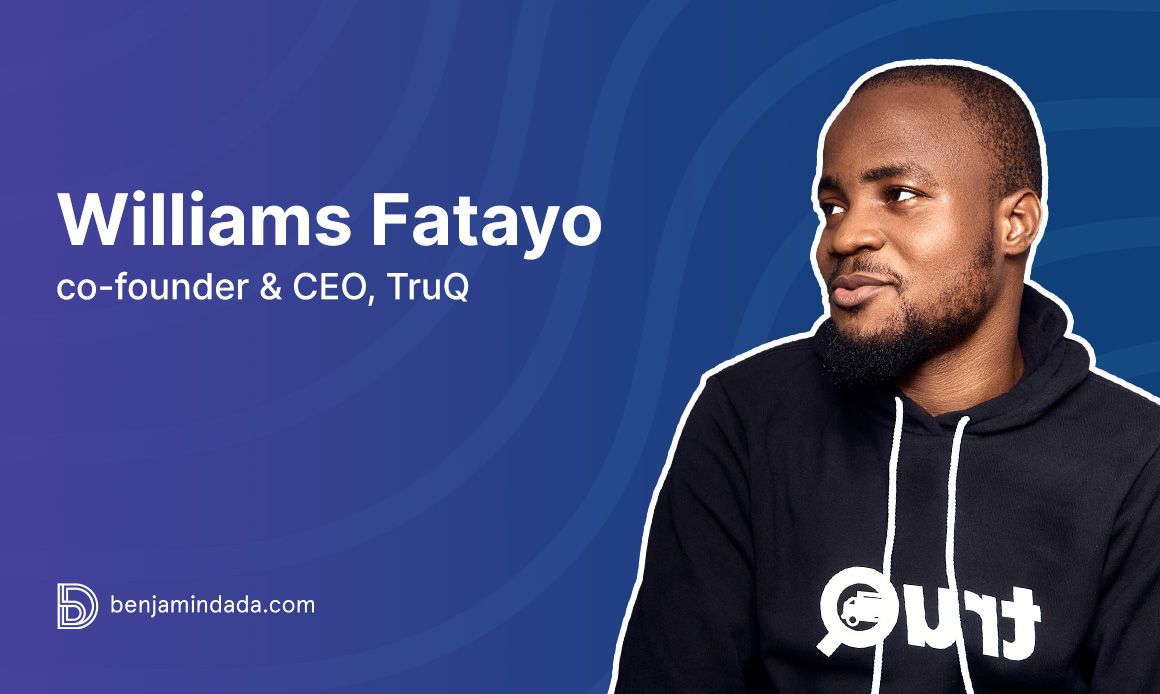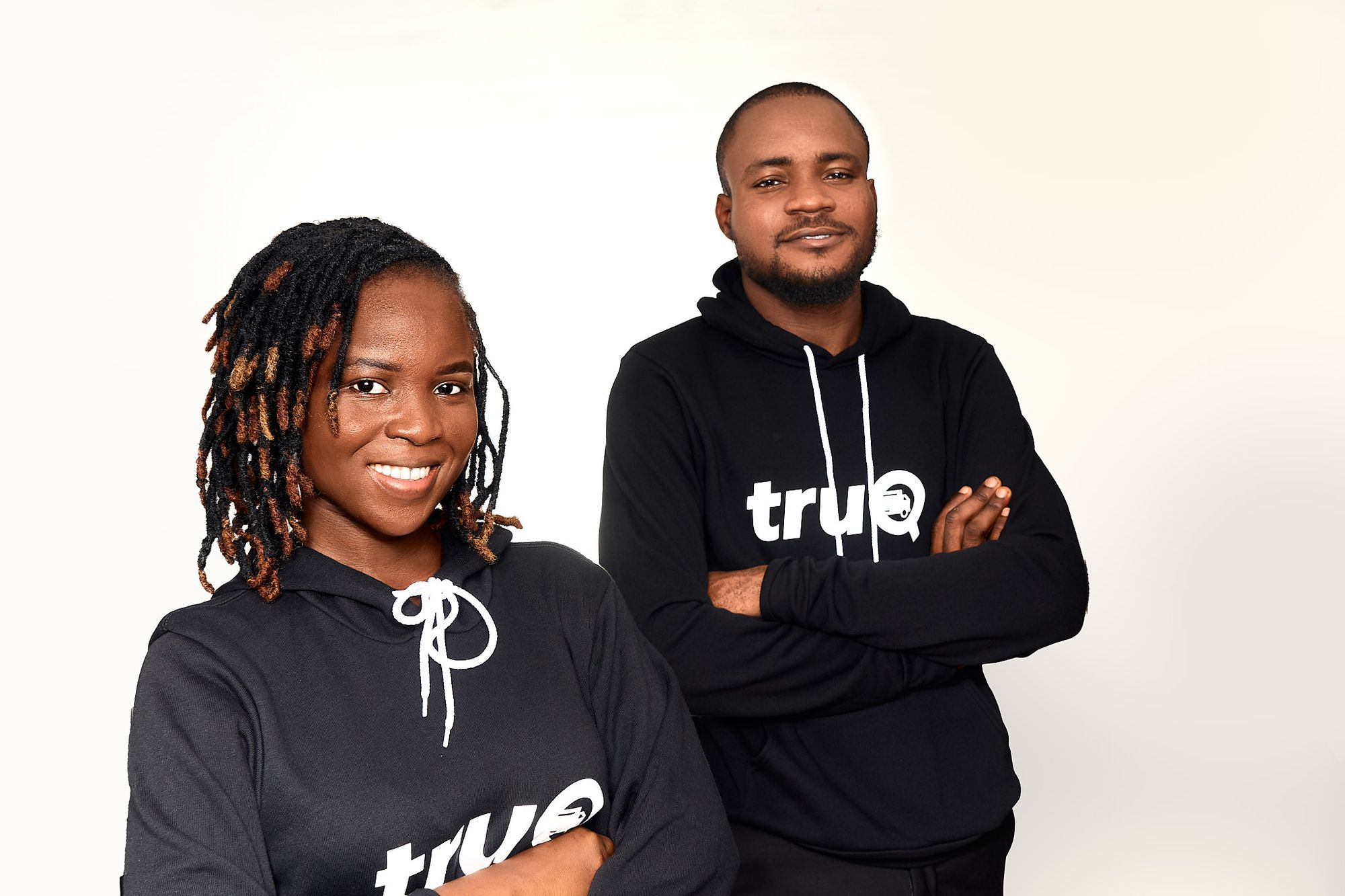How TruQ got into three accelerators within three years
Within three years of its existence, Nigerian logistics startup TruQ has been part of three accelerators. CEO Williams Fatayo talks about how this enabled the growth of the startup.

Over the years, global accelerators, especially Y Combinator and Techstars have played an important role in providing opportunities for African tech entrepreneurs to access mentorship and funding to build their startups from zero to scale.
Since its first African investment in 2012, Y Combinator has backed at least 100 startups on the continent. Techstars has also made more than 60 investments on the continent through its diverse programmes since its first investment in 2015. Recently, the accelerator launched a Lagos-based branch to deepen its efforts on the continent.
Within three years of its launch, 135 African startups have been selected for the Google Black Founders Fund (BFF), receiving $150,000 in non-dilutive cash awards each with other benefits.
These are just three out of several accelerators that have continued to play a pivotal role in fostering innovation and driving growth across diverse sectors on the continent. Serving as catalysts for the success of African startups, accelerators offer a platform for early-stage companies to refine their business models, expand networks, and secure essential investments.
Beyond this data, we have come up with an exclusive five-part series to go behind the scenes to learn about the impact of these accelerators on the African startup ecosystem. For the first episode, we talk to Williams Fatayo, the co-founder and CEO of TruQ, an operating system for third-party logistics.
Williams shares his remarkable accelerator experience, recounting how Truq navigated three different accelerator programs on their journey. From their early stages, when they were pre-revenue and enrolled in V8 Growth Labs, to their participation in renowned accelerators like Techstars and the more recent Google Black Founders Fund, Williams sheds light on the invaluable role these accelerators played in propelling Truq's growth and success.
How Truq got its first cheque from V8 Labs
“It's been a journey of understanding the markets, especially since we started Truq, and how exactly to solve the many problems within the logistics space,” he said. “When we launched, what we were trying to do was connect businesses with logistics and we’ve powered over 300,000 deliveries across 25,000 trips to date.”
According to him, they later learnt that access to vehicles was just one of the many problems within the logistics space. “We saw after three years that the problems within the space were way more than just bridging the active gap between demand and supply, and that was what led us to actually be able to find TruQ, which is now the operating system of top-bottom logistics,” Williams told Bendada.com
He further explained that what it does is it provides businesses with an AI-powered infrastructure to coordinate and optimize their logistics processes.
According to Williams, they had done over 2,000 trips and they didn’t really have a product since they mostly managed their operations on an Excel sheet before they applied to the V8 growth labs programs where they got $50,000. V8 was their very first investment and it came very early. “I won’t call it pre-seed because it was very early when they came in. It was just very much post-launch, but just a week or two after we launched,” he explained.
When asked if they attracted V8 because of the revenue TruQ was generating, Williams agreed. He said: “In fact, I have to point out that we didn't really have a product, what we had was a mock-up. Most of what we had done to that very point pretty much ran on Excel. I and my co-founder [Foluso Ojo] journeyed across Lagos and we built an Excel database of about 86 drivers.”

The duo designed a flyer with a phone number, asking people to call whenever they needed a truck. This was how they did their first 2,000 trips with over $100,000 in revenue, all on Excel sheets.
Getting in Techstars and then BFF
In response to the question of why they applied to Techstars? He responded that being a part of a global accelerator like Techstars pretty much gives you a kind of stamp of approval on what you’ve built.
According to him, another reason was the access it gets, especially as they weren’t building for the Nigerian market, but were playing for a continent-wide market and global market at scale.
“During Techstars, there was a session called Mentor Madness where they brought together about 100 mentors across different markets, across different industrial verticals for us to speak to and ask questions about what we were building,” he said. “That's the value of the program and we also got a community of founders.”
Williams shared with me that their first week at Techstars was a lot, as it helped them gain clarity as to why they joined the program and what they were looking to get out of it. Their ability to shape that up, helped them get so much value from the program.
For the Google Black Founders Fund, the first week was in London, where they met with the Google team and other founders coming to the program. They had sessions where they set the tone for what was ahead for them. According to him, every time they got into an accelerator, it helped them unlock a new phase of the business.
It was when they got into the V8 accelerator that their eyes were opened to the prospect of the business playing in the B2B space, asides from what they were already doing in B2C and they saw 13x of what they did in 2020, in 2021 in terms of growth. The first accelerator expanded the scope of the market they were already paying in.
“For Techstars, the clarity that Techstars gave us was on two fronts. One was that we needed to double down on our B2B offering. And the second side to it is that we needed to move from being a platform to building an infrastructure that powers every other 3PL provider or player out there, thereby expanding the scope of value proposition to business,” he added.
Accelerating despite hurdles
TruQ was one of the first five startups that were backed by V8 Growth Labs after it was launched in 2020. According to Williams: “When you are the first cohort of an accelerator. A lot of things haven’t been figured out at that point,” Williams explained. “The second side to it was that, it was our first time getting any contract of any form. So, we probably didn't look enough or try enough to understand the basics of that contract. And that created minor issues for us as we journeyed on. However, the investor was able to backtrack and review some of those clauses.”
As for Techstars, TruQ's CEO believes that they would have gotten way more value out of that program if it was a physical accelerator program.
“Most of the program was virtual. We later spent a week or two with some other founders in Toronto ahead of demo day. And that one week of interacting with founders within the program and completing the rest of the program together in one place was a critical experience that we wish we had throughout the course of the entire program,” he told Bendada.com.
Impact of Google Black Founders Fund
“The biggest impact, I would say, is beyond the funding. The biggest impact, I would say, is having access to Google's network and Google's resources as a business,” says Williams. “It is a really big flex. That is, if I need to have an AI and machine learning engineer in Google right now or as fast as possible, I can get some of the best AI and machine learning guys on Google's payroll to look at what I'm doing.”
According to him, to get that kind of consultation service could cost hundreds of thousands of dollars. Aside from receiving up to $150,000 in non-dilutive cash awards, selected startups in BFF get $200,000 in Google Cloud credits, Google Ads support, and one-on-one mentoring from Googlers and industry experts.
For Williams, this was an exciting experience for him and the rest of the team at TruQ. Just as it is with BFF, Techstars also provides founders like Williams access to a community of like minds who are at different stages of building various solutions. “Techstars mantra is Techstars for life. So, for the lifespan of your business and even in subsequent businesses you are going to start a business again, you still have the Techstars community to talk to. It goes beyond just the accelerator program and the investment,” he said.
Being part of these accelerators according to Williams positively impacts the reputation of your brand, thereby attracting customers, investors and talents. “You know, all of these things make your company look sexy to everybody,” he said. “We are raising our seed round right now. The kind of interest that we've gotten speaks to what I just said. How Google invests in your company sort of makes you look good to everyone.”
Which one should go first: accelerator or institutional funding?
Williams believes there’s no hard rule, one can go for either from the beginning. However, he said that customer acquisition should be an entrepreneur's priority at the beginning not funding. “The customers are your biggest investors. And they pay the biggest bills,” he advised. “You only need investors' money to scale and scale fast. If investors' money is the first level of what you are looking for, then you probably are not doing it right.”
Williams advises that the big picture has to be very clear in your application process because the purpose of an accelerator is to accelerate your growth so that you can get to that big picture. If your big picture is not clear, it dampens the accelerator's excitement to bring you in.
For instance, it took TruQ three attempts to get into the Google Black Founders Fund. It was this rigorous for Techstars as they were recommended by Onyeka Akumah, co-founder and CEO of Nigerian mobility startup Treepz. For V8, TruQ got in via a pitching competition that was organised by the accelerator.
Going the accelerator way
Accelerators can play a significant role in the success of African startups. By providing access to resources, mentorship, and funding, accelerators can help startups to scale their businesses and reach new markets.
The experiences of TruQ, as shared by Williams Fatayo, demonstrate the value that accelerators can offer. TruQ has benefited from participating in three different accelerator programs, each of which has helped the company to grow and evolve. The insights shared by Williams provide valuable advice for other African startups that are considering applying to accelerator programs.
Watch out for the next part of this series.







Comments ()